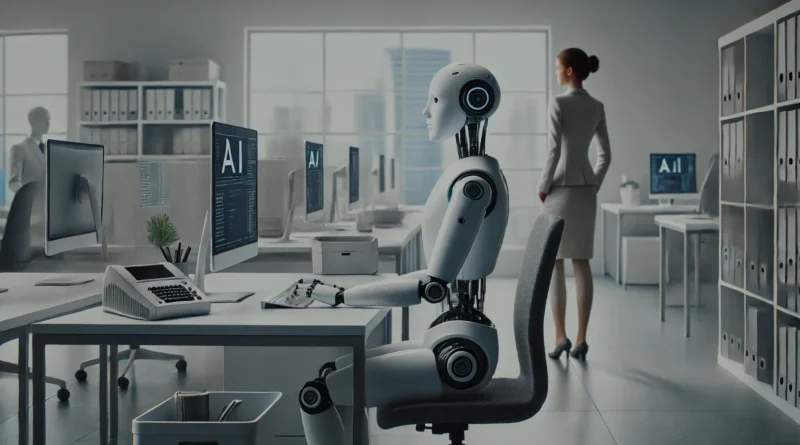Will AI Replace the Human IT Workforce? Not So Fast.
Industries have drawn attention to artificial intelligence (AI) fast development mostly because of the flood of interesting news but also because of the concerns it brings. Particularly in the IT industry, where automation is the driver of innovation and expansion, a very simple issue has become central: can artificial intelligence really replace the human IT workforce? Although artificial intelligence is clearly changing the nature of work, what is also true is that the replacement of human professionals—especially in IT—is not only unworkable in the near future but also somewhat unrealistic. Unquestionably, however, the transforming potential of artificial intelligence will change the way humans operate in many sectors.
The automation of repetitious, rule-based chores is among the first fields where artificial intelligence has clearly shown success. In the field of IT, some relevant situations may include automated software testing, network security issue discovery, or even software development teaming-through. Previously solely done by human workers and much more difficult, these tasks are now being handled by smart systems and machine learning algorithms. Apart from that, because they can address consumer complaints and quickly fix problems free from much or any human intervention, AI-driven chatbots are also progressively employed for the removal of first-level support activities. Not unexpectedly, this has created the prospect that artificial intelligence will replace numerous professions.
The strengths of an AI system are not at all in strategic thinking, creativity, or emotional intelligence. We have good examples of this in the fact that human professionals possess traits such as these which are vital in the IT field. More specifically, the architects of the system should spot the user requirements in advance, the developers have to design user-friendly interfaces, and cybersecurity experts have to think just like human opponents to keep their position at the top. In neither of these areas can AI replace the multilayered decision-making process nor take a purely human-centric approach when producing strategies that are user-friendly and considerate of ethical issues.
Acknowledging the rise of artificial intelligence creates new job paths, as demand for people competent in the design, development, and ethical management of AI systems will grow when these technologies start being integrated into IT systems. Currently, the professions of data scientist, machine learning engineer, AI ethicist, and AI engineer are among the first ones to the skills people of the future will need to work with in AI-engineered technologies. AI is no longer seen as a skill of the future, which is a determinant of a job still existing in a company rather than a future one.
Being able to keep up with the changes in the industry is what will make you survive in this modern and fast-changing world. IT professionals who are not afraid to upgrade themselves will be the ones driving the industry forward. Knowing how to complement AI systems in their work instead of replacing them will give people a great advantage. A grasp of data analytics, the basics of machine learning, and AI frameworks can make employees come to the rescue of their firms. However, essentially, upskilling does not mean one only learns how to code better. It is also about thinking more strategically, creatively, and being human, that is, a feature, which AI technology cannot copy.
There are also aspects of working dynamics that are strictly human, which AI cannot take over. Partnership, leadership, empathy, and dialogue are automatically part of most IT projects, especially those of agile nature. How successful a project is depends very much on the efficiency of the communication and the team’s unity as on the technical expertise. These are precisely the skills that are known as the soft skills as they are truly a feature of human workers, and consequently, they are very unlikely to be taken over by AI.
In the end, Artificial Intelligence is what really changes everything in the field of information technology. This shouldn’t be taken as a way to get people out of the job; instead, it helps them reach their full potential. People in the workforce can focus on new possibilities, come up with new ideas faster, and get smart answers with this tool. The question being asked is not who is better between a person and a machine, but how both can work together to succeed. In other words, people who are not only good at technology but also quick to respond, honest, and creative will play a big role in shaping the future of IT. People shouldn’t be afraid of AI; instead, they should embrace it and use it to the best to help their jobs grow.
Disclaimer
The information presented in this blog is derived from publicly available sources for general use, including any cited references. While we strive to mention credible sources whenever possible, Web Techneeq – Website Designer in Mumbai does not guarantee the accuracy of the information provided in any way. This article is intended solely for general informational purposes. It should be understood that it does not constitute legal advice and does not aim to serve as such. If any individual(s) make decisions based on the information in this article without verifying the facts, we explicitly reject any liability that may arise as a result. We recommend that readers seek separate guidance regarding any specific information provided here.

